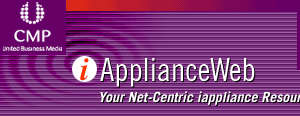



 |
 |
|
|
 |

|
||
|
|
|
|
|||

|
Microsoft to port Smartphone OS to ARM-10By MOUNTAIN VIEW, Calif. - Microsoft Corp. is porting its Smartphone 2002 operating system for cellular phones to the ARM-10 processor architecture and is working with ARM-10 licensees to offer it in high-end cellphones based on the processor. "We are having a lot of discussions with ARM Ltd. on supporting the ARM-10 and having our software available on processors from multiple ARM licensees," said Juha Christensen, vice president of Microsoft's mobile devices division. "It's unclear when fully integrated ARM-10 chips with DSPs will be available; it's still a ways out." Microsoft's cellphone OS is currently available on the OMAP processors of Texas Instruments Inc. and will be offered on an upcoming Xscale-based processor from Intel Corp. "We really want to bring component costs down so we think working with multiple partners will be important," Christensen said in a presentation at the Microsoft Research campus here. Five OEMs are developing cellphones using the OS, including Samsung Electronics of Korea, Sendo Ltd. of the United Kingdom, Compal PMCC and HTC Inc. of Taiwan and TLC of China. The phones are similar to existing handsets but offer some data functions and have larger color screens. Christensen said those phones will include stereo headphones and will be able to playback audio and video clips in Windows Media. Separately, Microsoft has rolled out a version of its Pocket PC operating system with integrated telephony functions. Christensen showed PDAs from HTC and Audiovox that use that software. Microsoft will add 40 people to Christensen's team next year and will leverage its existing sales staff to convince large businesses to link these cellphones to their corporate networks. "We think some of the early wins in this business will be enterprise wins," Christensen said. China will also be a key market for the high-end phones, said Christensen, who returned from that country recently after Microsoft signed TLC as its first cellular hardware partner. "They came out of nowhere and are now making a million phones a month," he said. "This is not a bolt-onto-the-PC business. It is a whole new business with a number of new types of companies that will be created as we saw with the PC," Christensen said. Telecom carriers earned about $500 billion in service revenues last year, primarily on voice services. "It's out of that opportunity we will carve a market for wireless data," Christensen said, projecting wireless data revenues of $86 billion by 2005. Christensen joined Microsoft from Symbian Ltd., a systems software company he co-founded as a partnership of Nokia, Ericsson and Motorola. Now he takes Nokia to task for promoting what he calls "closed standards" for services like multimedia messaging. "Nokia talks about the mobile Internet and tries to develop standards that are unique to it," he said, "but we think there should be just one Internet." |
|
||||||||

Terms and Conditions Privacy Statement |
||||||||||